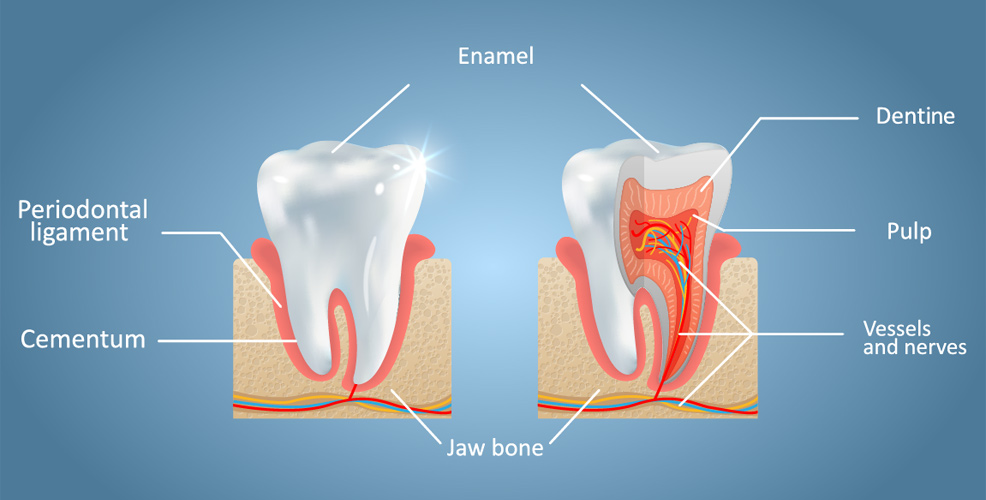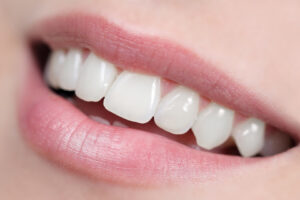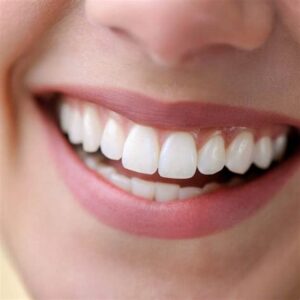
June 9, 2025
Your tooth enamel is remarkable ,the hardest substance in your body, designed to protect your teeth through years of chewing, biting, and exposure to various foods and drinks. But despite its impressive strength, enamel has one critical weakness: once it’s gone, the body cannot naturally replace it.
This limitation creates significant concerns for many people experiencing sensitivity, decay, or cosmetic issues due to enamel erosion. The question many patients ask at our cosmetic dentist in Marysville office is straightforward but complex: Can you really regrow enamel, or is this just wishful thinking promoted by clever marketing?
Understanding Tooth Enamel’s Unique Structure
What makes enamel so special and so challenging to replace is its distinctive composition. Enamel consists primarily of hydroxyapatite, a mineral form of calcium phosphate arranged in a highly organized crystalline structure. Unlike other tissues in your body, enamel contains no living cells and has no blood supply, which explains why it cannot heal itself when damaged though products like nano hydroxyapatite toothpaste are now being explored to help remineralize and protect weakened enamel.
Common causes of enamel erosion include:
- Consuming acidic foods and beverages
- Aggressive brushing
- Teeth grinding
- Acid reflux
- Certain medications
Once enamel erodes, the dentin underneath becomes exposed, often resulting in sensitivity and increased vulnerability to decay.
Current Solutions: Masking Rather Than Healing
Traditional dental approaches to enamel damage focus on covering or replacing the damaged area rather than regenerating the original tissue. Fillings, dental bonding, veneers, and crowns are standard treatments offered by your dentist in Marysville and elsewhere.
While effective for restoring function and appearance, these solutions have limitations:
- They don’t actually recreate natural enamel’s structure or function
- They may need replacement over time
These treatments are essentially sophisticated patches rather than true regeneration.
Breakthrough Research: Can We Regrow Enamel?
Recent scientific advances have generated excitement about the possibility of enamel-like restoration. Notably, researchers at Zhejiang University developed a calcium phosphate-based gel that, in lab conditions, formed an ultra-thin layer mimicking natural enamel on extracted human teeth.
This approach uses calcium phosphate nanoclusters that mimic the building blocks of natural enamel. When applied to human teeth in laboratory settings, these nanoclusters formed new enamel-like layers up to 3 micrometers thick. Electron microscopy confirmed that this new growth closely resembled natural enamel’s structure, offering promising insights into future technologies that may help regrow teeth or repair enamel damage more effectively.
What makes this method different from previous attempts is the extremely small size of the nanoclusters (about 1.5 nanometers) and the use of triethylamine to prevent particle clumping. These innovations allow for more continuous crystal formation that better mimics natural enamel.
Scientific Perspectives on New Regrowth Methods
While the research shows promise, independent experts remain cautiously optimistic. Dental researchers, including prosthodontists from King’s College London, have noted that:
- The regrown layers are extremely thin compared to natural enamel
- Laboratory conditions differ significantly from the challenging environment of the human mouth
- Long-term durability remains unproven
- The technique hasn’t yet been tested for deeper damage like cavities
Is Enamel Regeneration Available Yet?
Despite promising research, true enamel regeneration treatments are not yet available at any local teeth whitening clinic in Marysville or any dental office. The technology remains in the testing phase:
- Laboratory and animal studies are ongoing
- Human clinical trials may begin in the next few years
- Regulatory approval would be required before public availability
Before such treatments could become mainstream, researchers must demonstrate:
- Long-term safety and effectiveness
- Practicality for daily use
- Ability to address more substantial enamel damage
Protecting Your Enamel Today
While we await innovations that might someday help regrow enamel, prevention remains your best strategy. Protect your existing enamel by:
- Using fluoride toothpaste to strengthen enamel
- Limiting acidic foods and beverages
- Waiting 30 minutes after eating before brushing
- Using a soft-bristled toothbrush with gentle pressure
- Wearing a nightguard if you grind your teeth
- Having regular checkups
Some products, like fluoride varnishes and nano-hydroxyapatite toothpastes, can help remineralize very minor surface damage, but they don’t actually regrow enamel in the true sense. They can, however, help strengthen existing enamel and slow progression of minor damage.
Future Possibilities: Hope vs. Reality
The scientific journey from patching damaged enamel to potentially regrowing it represents significant progress. While complete enamel regeneration—replacing millimeters of lost tissue—remains beyond our current capabilities, growing microscopically thin protective layers may become possible in the coming years.
This represents an exciting step forward, but it’s important to maintain realistic expectations. The complex crystal structure of enamel, built over years during tooth development, is extraordinarily difficult to replicate artificially.
The Bottom Line on Enamel Regrowth
Current scientific consensus is clear: Natural enamel cannot regenerate on its own. While emerging technologies may eventually allow for minimal enamel restoration, research is promising but still in early stages. Good dental habits remain essential for preserving your existing enamel.
While we can’t yet regrow enamel completely, science is steadily advancing toward more effective protective treatments. In the meantime, caring for your natural enamel through preventative measures remains your best defense against sensitivity, decay, and cosmetic concerns.
Want to learn more about protecting your enamel or exploring cosmetic options for damaged teeth? Contact our expert team today.
Ready to Strengthen Your Smile?
Concerned about enamel loss or curious about cosmetic options? We’re here to help with trusted advice and personalized options.
Call us today to schedule your consultation or ask any questions—we’ll work around your busy schedule.
Dentistry at Marysville 1622 Grove St, Marysville, WA 98270
Make an Appointment: 360-659-5611
Office Hours
- Monday: 9 AM – 5 PM
- Tuesday: 10 AM – 6 PM
- Wednesday: 9 AM – 5 PM
- Thursday: 9 AM – 5 PM
- Friday to Sunday: Closed
We kindly ask for at least 48 hours’ notice if you need to reschedule. Missed or rescheduled appointments without notice may be subject to a fee. Thank you for your understanding.
New Patient Specials
New patients to Dentistry Marysville are invited to take advantage of one of our first-time visitor specials.
To claim the offer, screenshot or print the coupon and show it at your initial appointment.
$149 New Patient Special Plus $100 Off Your Second Office Visit*
*New patients only. A $369 value. Cannot be combined with other offers or insurance.
10% Off Cash Discount on All Dental Services*
*Cannot be combined with other offers or insurance.
$149 New Patient Special Plus Professional Teeth Whitening for ONLY $350*
*New patients only. Cannot be combined with other offers or insurance.
$89 New Patient Special* Limited Exam & X-rays
*New Patients Only. Cannot be combined with other offers or insurance.



